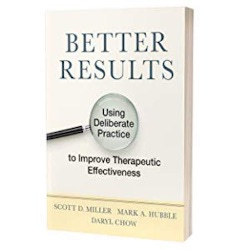Frontiers July'20 Tiny Newsletter👆

HERE'S WHAT'S JAM-PACKED INTO OUR JULY 2020 FRONTIERS NEWSLETTER:
A. The latest blog updates
B. Podcast (from all over).
C. The upcoming Batch #9 of Reigniting Clinical Supervision (RCS)
D. What I'm reading.
A. LATEST BLOG UPDATES
From Frontiers of Psychotherapist Development (FPD):
1. To Understand? Easy. To Help Someone Feel Understood? Difficult.
A whole series of series of sneak-peaks into the Deep Learner web-based workshop (registeration is closed):
2. A Deep Learner Needs to Create Play
3. A Deep Learner Needs Direction and Depth
4. A Deep Learner Needs a Möbius Strip
5. Extend Your Mind Using Knowledge Centralisation
6. The Holy Grail of Learning
From Full Circles: Reflections on Living:
1. Have You Eaten?
2. Parenting is…
B. PODCASTS
1. Frontiers Radio Episode #7. A Tribute to K. Anders Ericsson
2. Modern Therapist's Survival Guide Podcast. Reigniting Therapy, an interview with Daryl Chow
3. The Science of Psychotherapy: Daryl Chow on Getting Better Results
For older interviews, click HERE.
SPECIAL PLUG:

I want to give a special shout-out to Chrissy Gillmore, who has been at her own Frontier in so many ways.
Chrissy has a new podcast ‘Voices of Resilience Radio’. This show highlights ‘what is strong, not what is wrong’ in the stories of resilience from people who experienced childhood sexual abuse with Chrissy Gillmore, also someone who experienced childhood sexual abuse and now a counsellor.
Listen to the first episode, an interview with a Fijian Indian, New Zealand woman, where Ashley and Chrissy discuss Ashley’s resilience and have some true ‘goosebump’ moments.
Chrissy was also recently featured on my other favorite podcast, Very Bad Therapy. #61. What Heals Trauma. This episode really pulled at me, the same way when I see scared little kids who are prescribed to attend therapy while their caregivers stay in the waitroom...

Reigniting Clinical Supervision:
Our 9th Batch of Reigniting Clinical Supervision (RCS) web-based workshop kicks off in a week, 3rd of August Monday. This is our first announcement, and we already have folks who were on the waitlist that have signed up. If you are a clinical supervisor who want to increase your impact, RCS was designed for you.
For more, see the landing page, as well as an in-depth interview on this very topic in psychotherapy.net
Oh.. since you are on the Frontiers list, don't forget to use the exclusive 15% discount promo code at checkout: FRONTIERSVIP.
CLOSING DATE: 31st of July 2020 (FRI)
START DATE: 3rd of AUGUST, MON.
One bite-size practical video tip, every MONDAYS and FRIDAYS for 6 months... and a LIFE-TIME ACCESS!
WHY FOCUS ON HELPING SUPERVISORS?
In 2017, I decided to build an entire online course specifically for supervisors simply because of one observation: How well an organisation succeeds in their efforts to better help their clients, hinges on the guidance of clinical supervisors. They can totally upend all efforts, or they could light up the team.
After 8 rounds of students all around, RCS is intentionally designed to help supervisors match the keys to the lock, so that good change can start to blossom for therapists hungry to push their growth edge.

D. WHAT I'M READING
1. Less Medicine, More Health by Dr H Gilbert Welch.
- This is a book I plan to gift my GP.
- It's particularly interesting to be reading this during the pandemic. Welch takes on 7 core assumptions we made about medicine. One that was really striking is the following: Assumption #1. "All risks can be lowered." His counter: "risks can't always be lowered—and trying creates risks of its own.
- This book reminds me of Gerd Gigenrizer's Risk Saavy, which is a book that changed my mind on how I see risk.
2. Die Wise by Stephen Jenkinson
- Scott Miller told me about him (watch the interview he did), and I began to dig further.
- Pair this with the documentary Grief Walker.
- His words are poetic and penetrating. For people working with grief (that means all of us), I highly recommend that you check out his Jenkinson's work.
3. Money and the Soul's Desires by Stephen Jenkinson (buy this direct from the author. Way cheaper)
- I have been trying to write about money, as I had such a difficult relationship with it.
- I listened to this audiobook. It's the first that encapsulated much of my wrestlings and offered me a way to behold the paradox of money and doing stuff that truly matters in my life.
- This is not a how-to book, but it speaks to the literal and metaphorical role money plays in our lives. "Money is like the sea... no defined form.. change to the point of being fickle."
4. The Secrets of Happy Families by Bruce Feiler
- I was really skeptical at first about this book, but right from the first chapter, I'm sold.
- I love the idea of weekly family meetings.
- 3 Questions: a. What went well as a family? b.What went wrong? c. What can we work on?
- We have just started doing this. I was astounded that my 6 year came up with her what she would work on. "I'd try not to jump to conclusions (about her little sis)..." She rather pleased when my wife and I both said we would try to yell less.
5. The Council of Dads by Bruce Feiler.
- I read this in one sitting while putting my daughters to bed.
- This book was mingled with tears, but ended with giving me with plans for my will.
- I am now thinking about the people I want to assign to guide and council my children when I die.
6. Algorithms to Live By by Brian Christian and Tom Griffiths
- I'm deeply fascinated about how we can learn about ourselves through the ways we "teach" machines to learn.
- While some parts of the book fell over my head, it's central themes within each chapter, based on critical algorithms we can employ e.g., Optimal stopping, Explore/Exploit, Bayes Rule, are illuminating.
Full disclosure: All book links, except book #3, are amazon affiliate links, which means that I get a few cents if you pick up a book from here.


Have you read our new book?
Take care of yourself, and someone else too.
Blessings,

Daryl Chow, Ph.D.



